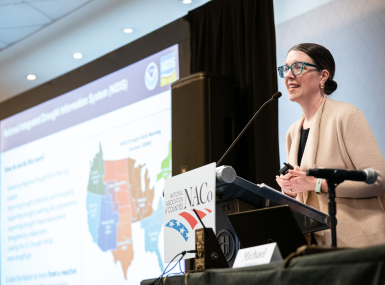Counties and the Inflation Reduction Act: Elective Pay Update

Available On-Demand
This webinar is available on-demand. If you have issue accessing the recording, please email nacomeetings@naco.org.
On March 5, the U.S. Department of the Treasury (Treasury) issued final regulations for the elective pay mechanism established in the Inflation Reduction Act (IRA). Using elective pay, also known as direct pay, counties and other tax-exempt entities can monetize certain clean energy tax credits that they have previously been unable to access due to their lack of tax liability. On March 5, Treasury also unveiled a new proposed rule to provide criteria regarding the eligibility of certain ownership structures to claim elective pay. During this webinar, counties will hear from Treasury and the U.S. Department of Energy (DOE) on these new regulations and other funding opportunities available under IRA.
Watch Recording
Speakers

David Eichenthal

Dr. Taresa Lawrence

Hon. Adrian Garcia
Resource
Inflation Reduction Act Funding Explorer

Related News

NOAA outlines help for counties navigating drought’s growing risks
In April, the National Integrated Drought Information System will launch the Mid-Atlantic Drought Early Warning System, which will help county officials allocate resources and attention to mitigate drought-related disasters.

House Agriculture Committee introduces 2026 Farm Bill
On February 13, House Agriculture Committee Chairman G.T. Thompson (R-Pa.-15) introduced the House version of the 2026 Farm Bill, the Farm, Food, and National Security Act of 2026.
